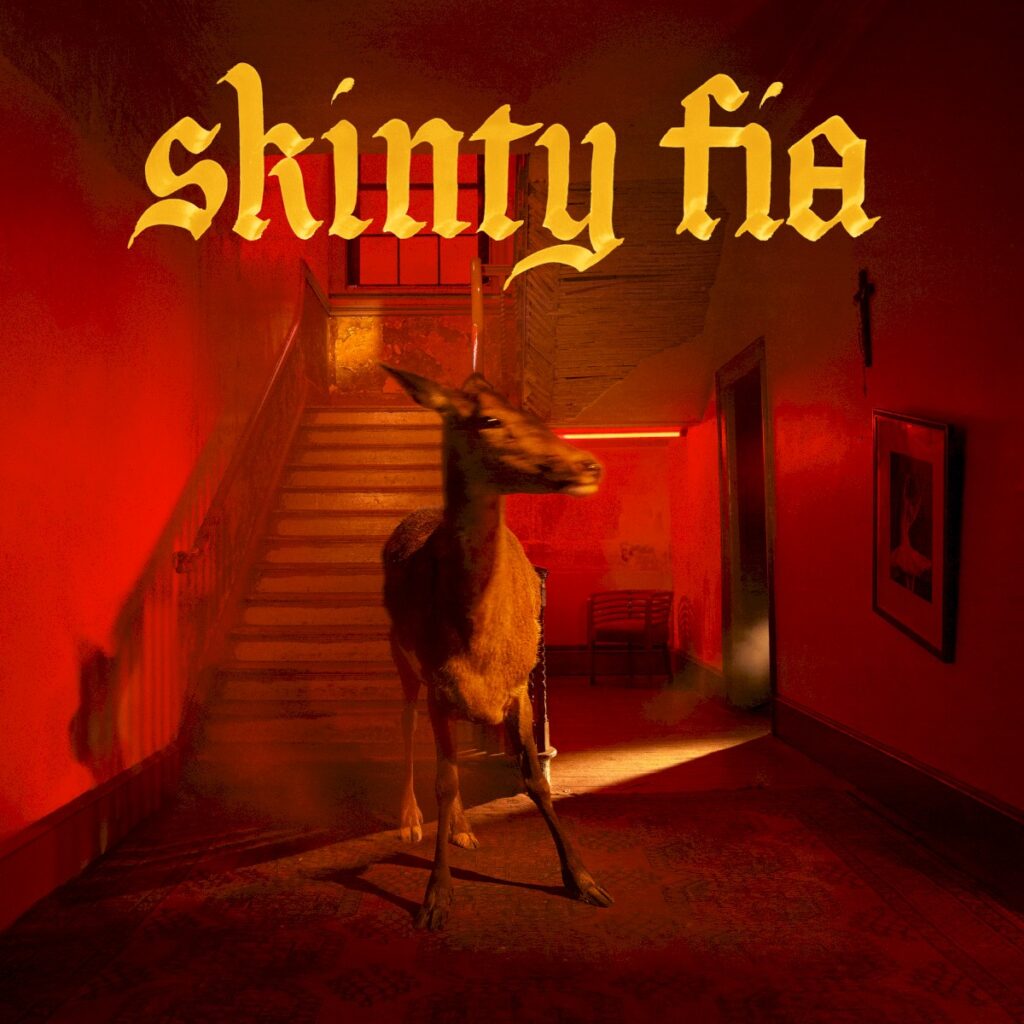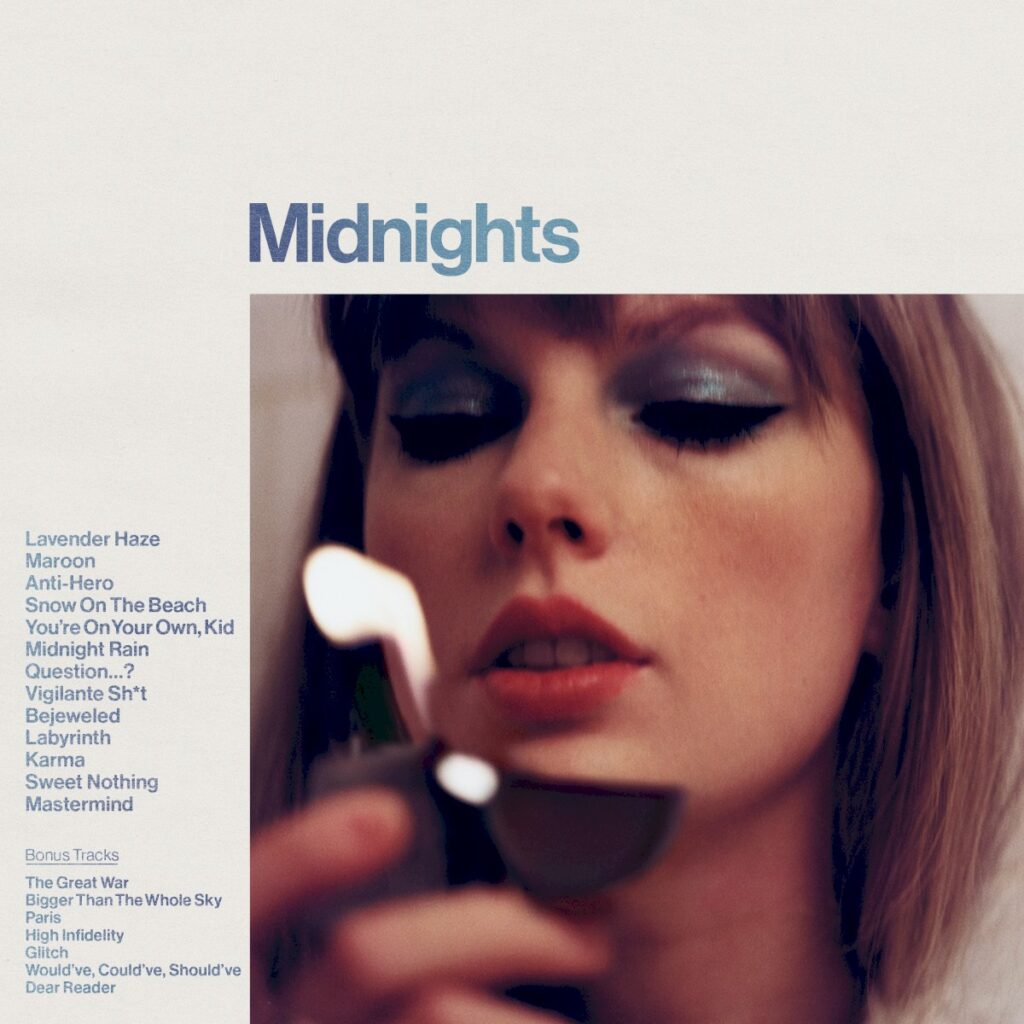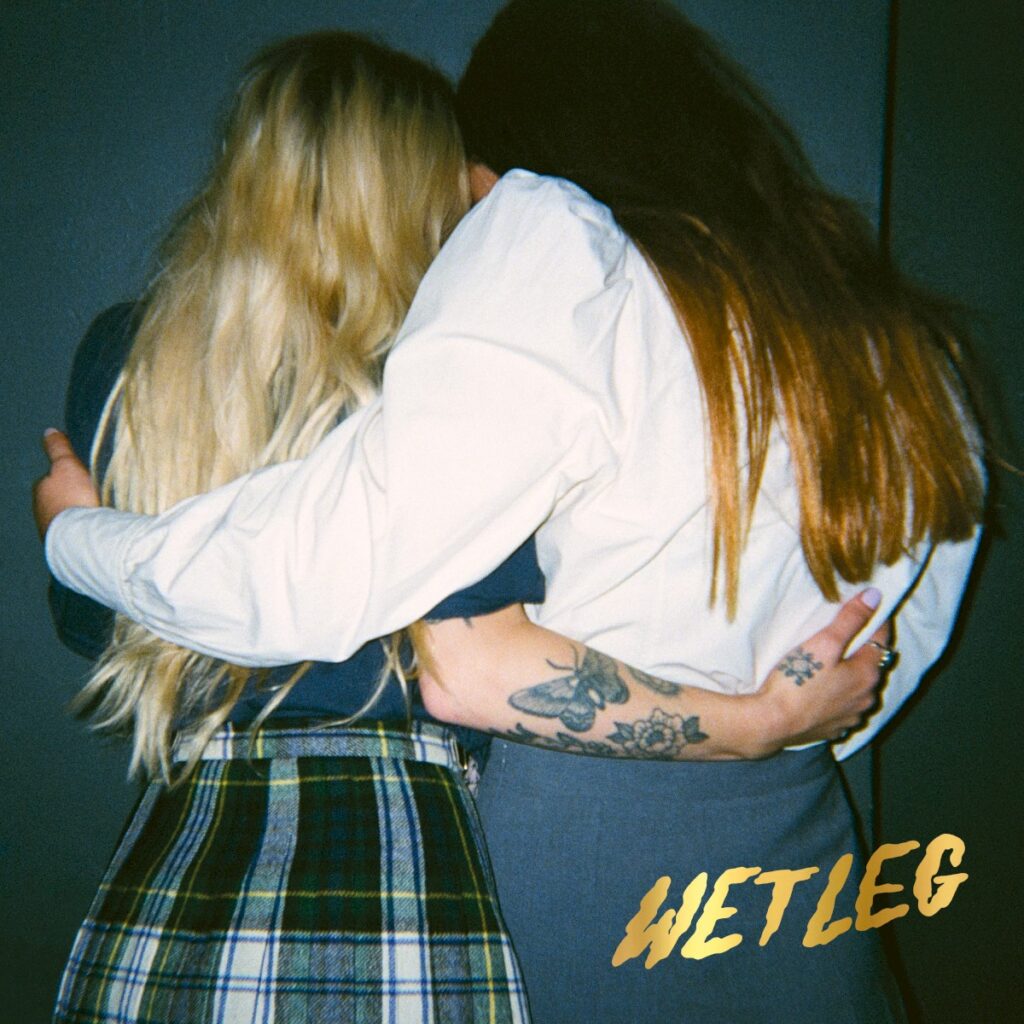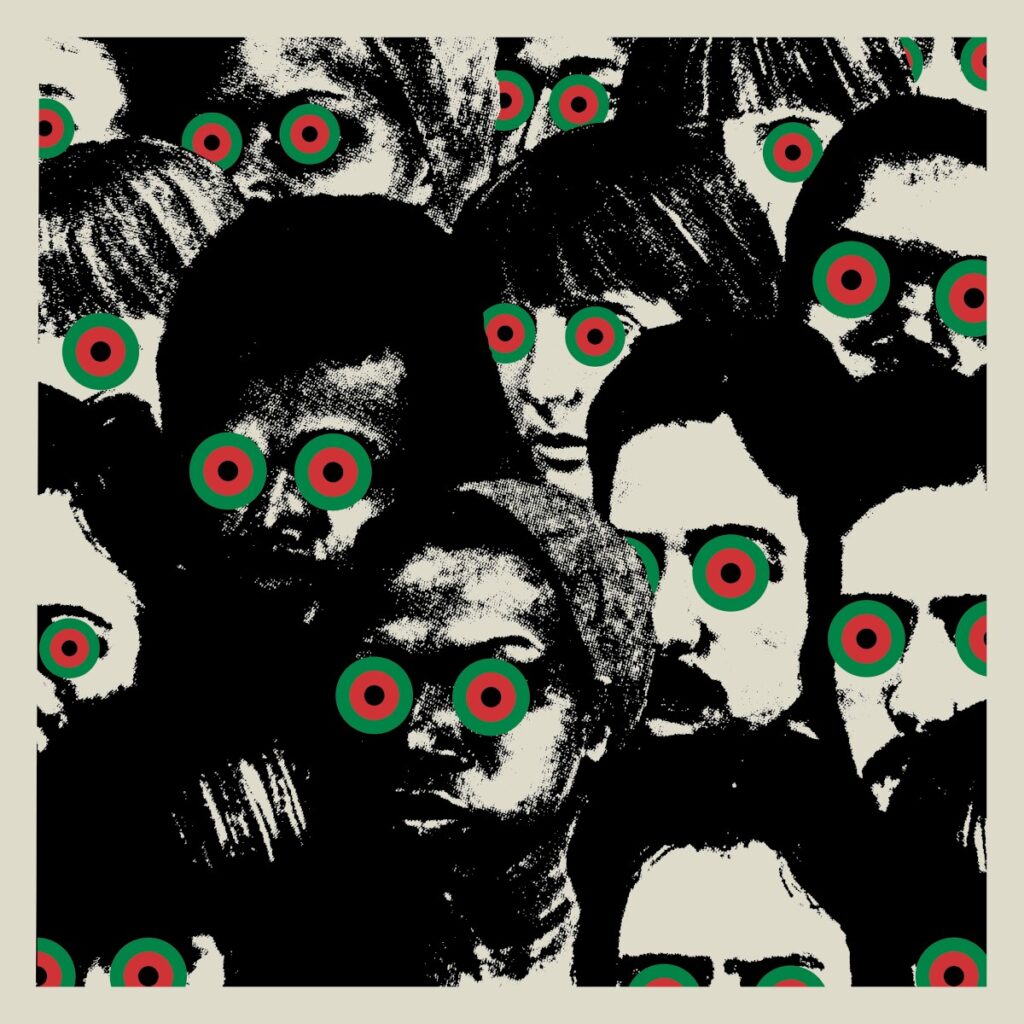Previously,
The Best 20 Albums of 2022: My Picks #20-16
15.
Fontaines D.C., ‘Skinty Fia’

Fontaines D.C.’s third studio album, Skinty Fia, is a record that transcends the Irish post-punk quintet’s previous works, providing an introspective exploration of identity and dislocation amidst themes of cultural nostalgia and diaspora. The title Skinty Fia is a reference to an old Irish saying, meaning “the damnation of the deer,” which, as Grian Chatten, the band’s voice explains, was used by drummer Tom Coll’s great-aunt. This phrase encapsulates the album’s thematic essence: a meditation on cultural displacement and metamorphosis. The band members, all Irish expatriates living in London, channel their experiences of alienation and yearning for home into the fabric of this album. Skinty Fia is imbued with a profound sense of identity, reflected through its audaciously personal lyrics and evocative soundscapes. Thematically, the album traverses the pains and strains of fame, the unresolved quest for self-identity, and the inevitable sacrifices that come with pursuing one’s dreams. Tracks like I Love You harness raw emotion, exploring the convolutions of love and identity with lines such as “I love you, I told you I do. It’s all I’ve ever felt.” Such sentiment is encapsulated through a brooding bassline and crescendoing intensity. Skinty Fia evokes an undulating soundscape that simultaneously brims with gritty post-punk roots while venturing into more experimental realms. Tracks like How Cold Love Is and Nabokov don’t lend themselves to casual listening; instead, they demand immersion and introspection. The sonic architecture of these tracks, characterized by swirling guitars and hypnotic rhythms, reinforces the album’s themes of cultural dislocation and inner turmoil. The immersive depth created by these compositions highlights the band’s commitment to evolving their sound beyond the confines of traditional post-punk.
14.
Black Country, New Road, ‘Ants From Up There’

In an era when the endless cycle of reinvention has turned predictability into a cardinal sin, Black Country, New Road’s second studio album, Ants From Up There, stands as an epitome of meticulous artistry and emotional profundity. At its essence, Ants From Up There encapsulates poignant themes of change, departure, and emotional turmoil while holding steadfast to an intricate soundscaping that straddles the line between chaos and melody. The departure of lead vocalist and guitarist Isaac Wood only days before the album’s release lends a degree of bittersweet finality to his contributions, almost making it a swansong. The themes of endings and transitions run deep throughout the album, from the opening track Chaos Space Marine to the sprawling, 12-minute epic Basketball Shoes. With eerie foresight, the lyrics “We’re all working on ourselves / And we’re praying that the rest don’t mind how much we’ve changed” in Basketball Shoes poignantly capture the essence of this transformation. Remarkably, the structure and composition of Ants From Up There eschew traditional forms yet manage to be utterly engrossing. Unlike their debut, which had a frenetic and intense energy, this album leans towards more serene, yet equally potent, musical arrangements. The band’s sonic influences range from Arcade Fire’s grandeur to Sufjan Stevens’ tender minimalism, further enriching the diversity of the album’s soundscape. The use of instruments such as the violin, saxophone, and piano reveals new textures in the band’s sound. Tracks like Haldern and Mark’s Theme bring out complex layers and transitions that challenge the listener while remaining remarkably coherent. The meticulous arrangements reach their zenith in Snow Globes, which layers orchestral elements over elements inspired by The Pixies to sublime effect.
Show me the place where he inserted the blade
Show me the fifth of the cadence you want me to play
Show me where to tie the other end of this chain
13.
Taylor Swift, ‘Midnights’

I wanna brainwash you
Into loving me forever
I wanna transport you
To somewhere the culture’s clever
Confess my truth
In swooping, sloping, cursive letters
Let the only flashing lights be the tower at midnight
In my mind
Taylor Swift’s Midnights, her 10th studio album and 4th Grammy AOTY win, presents a capriciously woven tapestry of nocturnal ruminations, plunging deep into an introspective exploration of the sleepless nights that have punctuated her life. Midnights is unequivocally a concept album, yet it skirts the boundaries of this designation with an unstructured unity elevated by Swift’s lyrical prowess and Jack Antonoff’s restrained production. The album is articulated through the motif of sleepless nights, capturing the musings that occupy the liminal space between waking and sleeping. Taylor Swift herself described it as “a journey through terrors and sweet dreams.” Swift’s reflective mood channels a spectrum of emotions ranging from self-loathing and insecurity to revenge fantasies and romantic contemplations. Themes of career and personal life juxtapose within songs such as Midnight Rain, where Swift poignantly underlines the dichotomy between seeking comfort and embracing the challenging paths of fame. On the lyrical front, Midnights swings back to Swift’s introspective storytelling, adorned with autobiographical nuances. Lavender Haze, the album’s opening track, introduces listeners to a world where public scrutiny and personal relationships are continuously at odds. The song threads a romantic narrative interlaced with feminist undertones, critiquing societal expectations imposed on women. Throughout the album, Swift masterfully uses her characteristic confessional style to address complex themes. Anti-Hero stands out for its biting self-awareness, fumbling through the dichotomies of self-worth and public image with candid precision. Midnights signifies a palpable retreat from the folk and indie elements that dominated Swift’s pandemic-era works, folklore and evermore, returning to a more recognizable pop framework. The album predominantly embraces synth-pop and electronic beats, meticulously sculpted through the collaboration with Antonoff. Midnights also stands as a reflective musical journey, drawing subtle references from Swift’s extensive repertoire. The nostalgia imbued within the album bridges past and present, resonating with motifs that dedicated fans would find all too familiar. Tracks like You’re on Your Own, Kid look back on her journey, recounting the trials and tribulations experienced along the path from outsider to global superstar. Furthermore, the album’s aesthetic amalgamates influences from different eras. The 70’s album art aesthetic juxtaposed with modern pop and R&B inflections illustrates the fluidity Swift exhibits in her artistic endeavors.
From sprinkler splashes to fireplace ashes
I gave my blood, sweat, and tears for this
I hosted parties and starved my body
Like I’d be saved by a perfect kiss
The jokes weren’t funny, I took the money
My friends from home don’t know what to say
I looked around in a blood-soaked gown
And I saw something they can’t take away
12.
Wet Leg, ‘Wet Leg’

In their self-titled debut album, Wet Leg presents a quirky, catchy, and deeply engaging post-punk record that encapsulates the zeitgeist of twenty-something life with a blend of irreverent humor and genuine emotion. The overarching theme of Wet Leg is a playful yet insightful exploration of the anxieties and absurdities of young adulthood. The album’s lyrics are peppered with witty one-liners and sardonic observations that speak to the experience of being in your twenties. From navigating relationships to grappling with societal expectations, Teasdale and Chambers use humor as a vehicle to delve into these universal experiences. As Rhian Teasdale explained, “I wanted to write stuff that’s fun to listen to and fun to play,” yet “the sad seeps through.” This duality of fun and melancholy is a defining feature of the album. The playfulness of the lyrics is evident in tracks like Chaise Longue, where the mundane is transformed into a source of endless amusement. The song Supermarket turns the banal act of grocery shopping into a catchy anthem about the little “big steps” in relationships, underscoring the kitschiness that permeates much of the album. Wet Leg draws heavily from the post-punk genre, infusing it with elements of new wave and indie rock. The album opens with Being In Love, a track inspired by shoegaze, driven by shimmering guitar riffs and minimalist verses, setting the tone for the ensuing tracks. The album’s compositions are characterized by their simplicity and effectiveness. Chaise Longue, for instance, is built around a single note, strummed fast, with minimalistic guitar and bass lines that return to the same note, creating a hypnotic loop that anyone can learn but everyone finds irresistible.
11.
Black Thought & Danger Mouse, ‘Cheat Codes’

I’m still in photos, posted with my own omen
A thumping kicker for me to slam like Hulk Hogan
It’s something like a plane bumper sticker, no slogan
This something for the shooters and back-and-forth commuters
Who never knew the difference in laws and jurisprudence
Cheat Codes, is a masterclass in modern hip-hop that is deeply rooted in its rich history. It’s an album that bridges the gap between the old-school and the contemporary, painting vivid portraits of urban struggle, black identity, and personal resilience. While the album delves into numerous themes, one of the more prevalent ones is the intricacies of being black in America. Trotter’s lyrical prowess captures the diversity and complexity of the Black experience, often critiquing societal limitations and emphasizing the importance of understanding and psychological growth. The imagery of societal constraints, oppressive socio-economic conditions, and the lengths to which individuals must go to survive dominate the album. Lyrically, Cheat Codes appears to be the culmination of Tariq Trotter’s (Black Thought) reflective journey, bringing together his observations, insights, and learned lessons into a cohesive narrative. On tracks like Belize, Black Thought critiques the superficial perceptions of strength and resilience, portraying himself as an individual imbued with a metaphorical “exo-skeleton.” Songs such as No Gold Teeth capture an urgency that feels both personal and universal, tracing Trotter’s relentless motion back to his childhood experiences. Danger Mouse’s production serves as an elegant and stark contrast to the complexity of Black Thought’s lyrics. The album curates a sonic palette that is both nostalgic and futuristic, layering soul, psych-rock, and funk samples to create a sound that feels timeless yet distinctly fresh. Cheat Codes features stripped-down, boom-bap beats that allow Trotter’s voice to shine through, juxtaposed against the lush samples and understated drum patterns. An excellent example is the track Sometimes, where Danger Mouse samples Gwen McCrae’s Love Without Sex, creating a warm, soulful backdrop that perfectly complements Black Thought’s poignant delivery. This balance of elegant loops and space in the instrumentation sets the tone for the entire album, allowing each beat to resonate without overwhelming the listener.
Continue Reading:
The Best 20 Albums of 2022: My Picks #10-6
The Best 20 Albums of 2022: My Picks #5-1